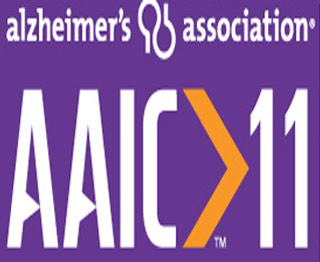
The investigators believe that people who show initial symptoms of the disease may not ask for medical therapies and thus miss the chance of early detection and medication. To comprehend this issue, a survey was conducted to gauge the attitudes and ideas related to the condition.
“The reason for the survey is the importance of promoting early Alzheimer’s diagnosis, and the fact that early diagnosis is included in national dementia plans in England, France, Norway and Scotland. In Europe, we are still encountering resistance from some in the medical profession due to their nihilistic views regarding the value of an early diagnosis and the benefits of current treatments. We were hoping that a public opinion survey would show a willingness to gain a diagnosis and the value of confronting the disease,” commented Jean Georges, Executive Director of Alzheimer Europe.
Around 2,678 adults in the age-group of 18 and older were questioned on telephone in February 2011. In nearly 4 countries out of 5, Alzheimer’s was the second most dreaded disease after cancer. In Poland, Alzheimer’s stood third after cancer and heart disease. Around 26.9% in France, 23% in Germany, 12% in Poland, 23.6% in Spain and 21.9% in the U.S. seemed to be wary of Alzheimer’s. Many respondents were also concerned if they or a person from the family gets the disease.
Though Alzheimer’s is not regarded as a lethal condition specifically outside the U.S, there appeared to be a specific set of people who believed the disease to be fatal. The number of persons who answered yes to the question that enquired if the disease is fatal or not, was inclusive of 44.4 % in France, 32.7% in Germany, 34.3% in Poland and 41.7% in Spain and 61% in the U.S.
About 80 to 85 percent in each of the 5 countries admitted to be visiting a practitioner in case they showed signs of memory loss or confusion. Around 94 to 99 percent wished to take a family member to the doctor if they appeared to show any symptoms of memory loss.
Almost 26 to 63 percent who took part in the study are of the opinion that there is an efficient medical or pharmaceutical therapy to lessen the development of the Alzheimer’s disease and to lower the intensity of symptoms. Around 38 to 59 percent felt that there is a trustworthy test to check if a person is in the initial stages of the disease. Both the above stances are apparently not true.
The enrolled persons also displayed a large support for the government that utilizes money for various treatments of Alzheimer’s disease. The list included 82.6% from France, 68.2% from Germany, 74.7% percent from Poland, 83% from Spain, and 67.4% from the U.S. Most of them also felt that the way they voted for a nominee for national office was immaterial.
This study unfolds the fear and concern people experience as well as the need of addressing and eliminating Alzheimer’s disease. According to Georges, improved public awareness on various treatments and tests of the disease seems to be crucial.
